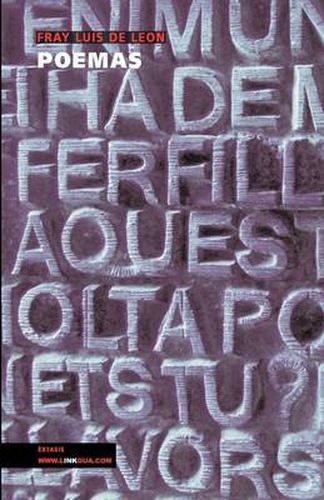Readings Newsletter
Become a Readings Member to make your shopping experience even easier.
Sign in or sign up for free!
You’re not far away from qualifying for FREE standard shipping within Australia
You’ve qualified for FREE standard shipping within Australia
The cart is loading…






This title is printed to order. This book may have been self-published. If so, we cannot guarantee the quality of the content. In the main most books will have gone through the editing process however some may not. We therefore suggest that you be aware of this before ordering this book. If in doubt check either the author or publisher’s details as we are unable to accept any returns unless they are faulty. Please contact us if you have any questions.
Fray Luis is considered one of the greaest voices in Castilian poetry. These poems are divided into three sections: originals, translations of secular poets, and biblical translations. First published in 1631 during the poetic war between Quevedo and Gongora, his work didn’t receive recognition until the late 19th century. Some consider him a mystic poet, while all appreciate his poems’ intimate religious qualities.
$9.00 standard shipping within Australia
FREE standard shipping within Australia for orders over $100.00
Express & International shipping calculated at checkout
This title is printed to order. This book may have been self-published. If so, we cannot guarantee the quality of the content. In the main most books will have gone through the editing process however some may not. We therefore suggest that you be aware of this before ordering this book. If in doubt check either the author or publisher’s details as we are unable to accept any returns unless they are faulty. Please contact us if you have any questions.
Fray Luis is considered one of the greaest voices in Castilian poetry. These poems are divided into three sections: originals, translations of secular poets, and biblical translations. First published in 1631 during the poetic war between Quevedo and Gongora, his work didn’t receive recognition until the late 19th century. Some consider him a mystic poet, while all appreciate his poems’ intimate religious qualities.